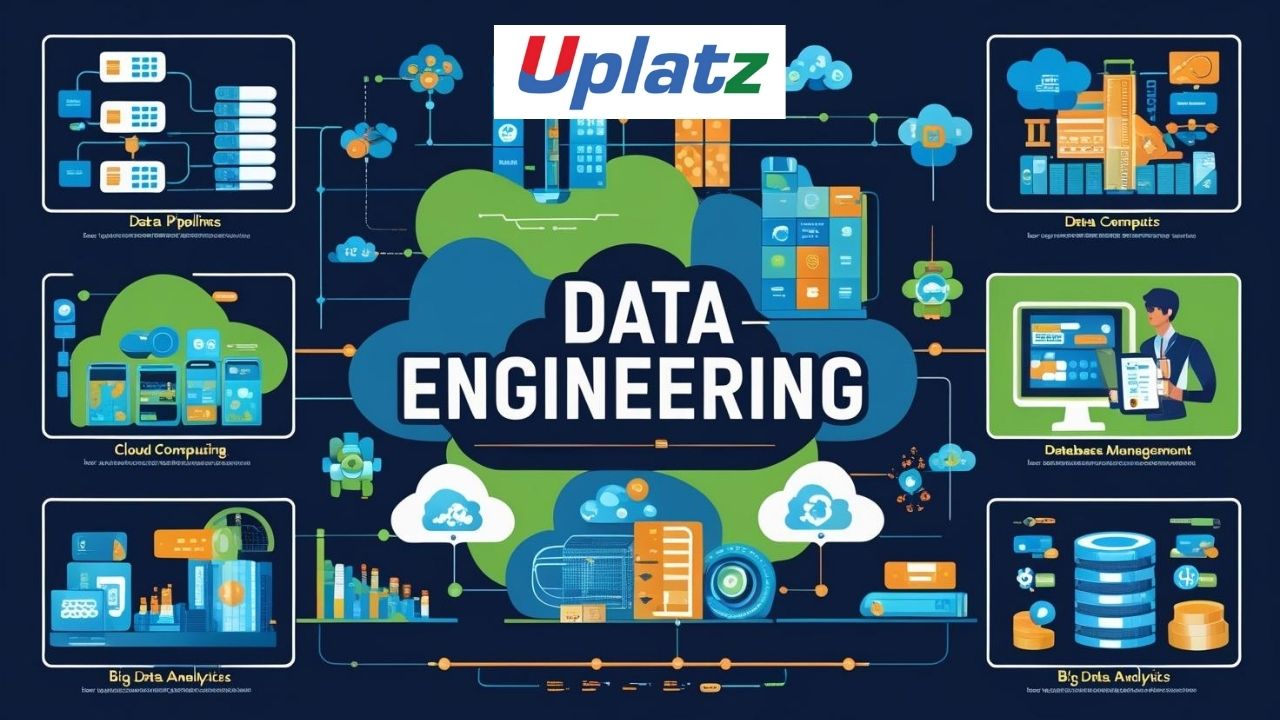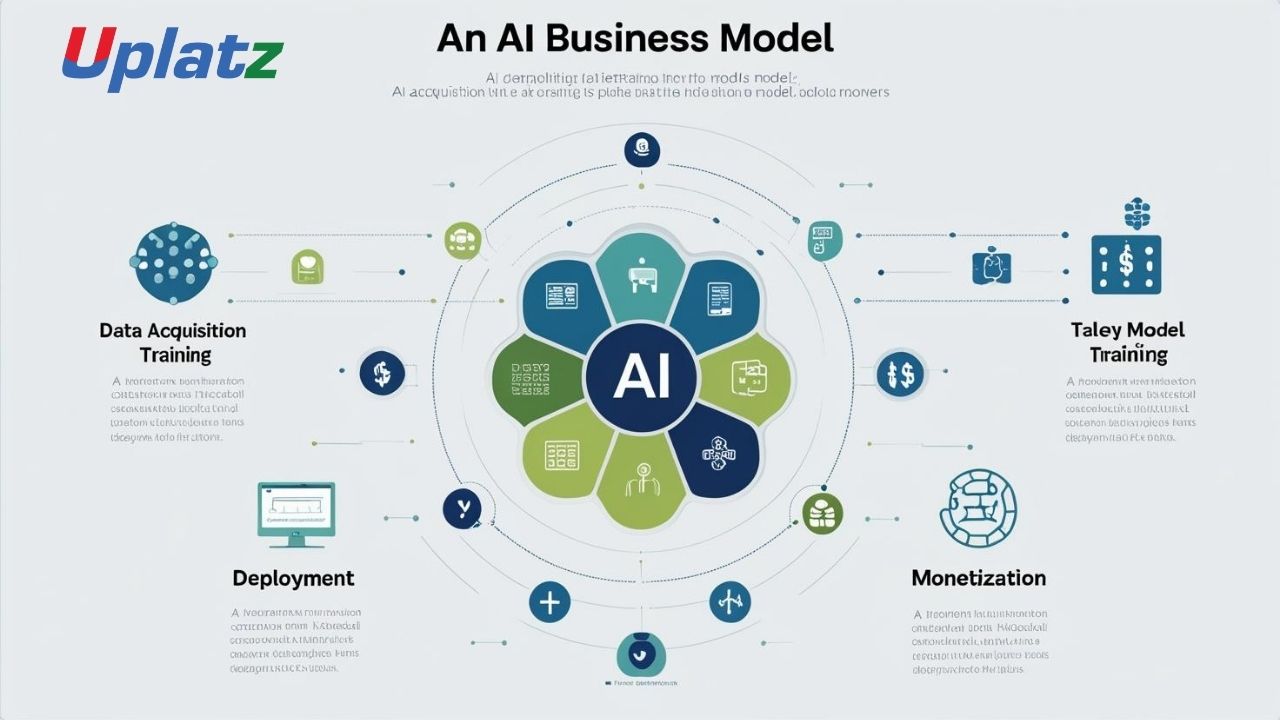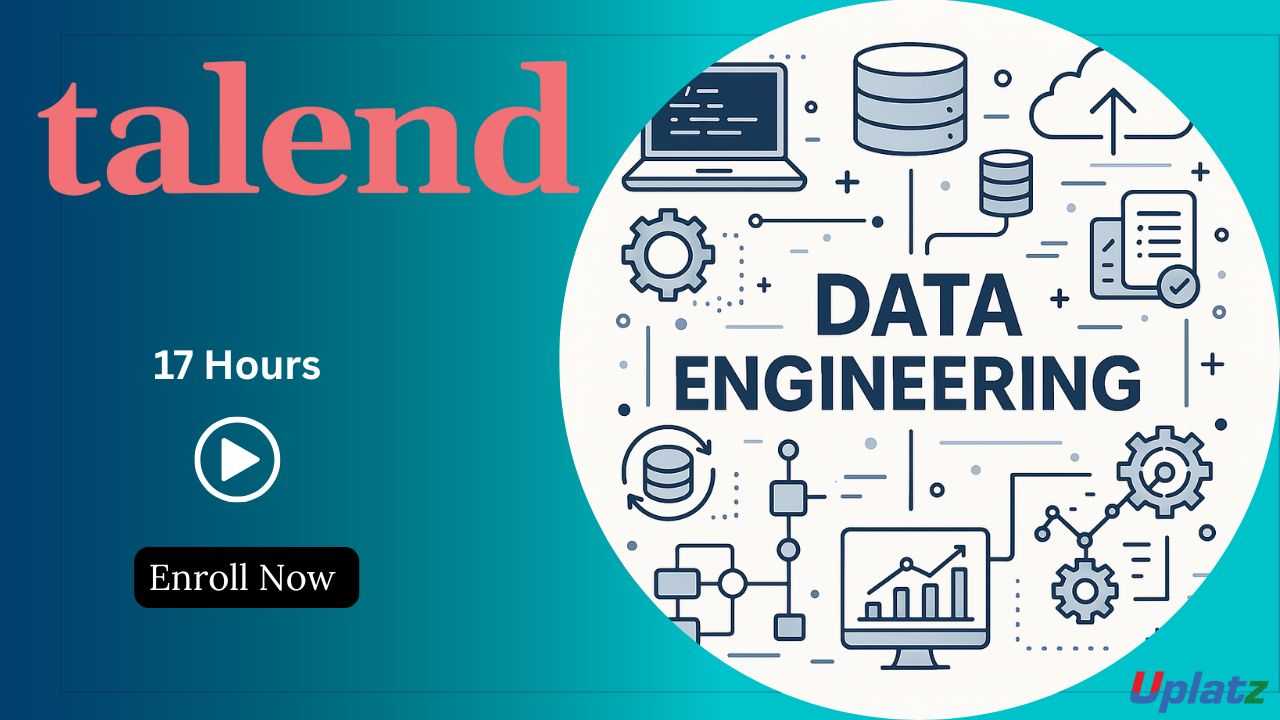Alation
Master data intelligence with Alation and learn how to catalog, govern, and democratize data across your enterprise with confidence and clarity.Preview Alation course
Price Match Guarantee Full Lifetime Access Access on any Device Technical Support Secure Checkout Course Completion Certificate 96% Started a new career
BUY THIS COURSE (
96% Started a new career
BUY THIS COURSE (GBP 12 GBP 29 )-
 85% Got a pay increase and promotion
85% Got a pay increase and promotion
Students also bought -
-

- Data Engineering
- 10 Hours
- GBP 12
- 10 Learners
-

- AI Business Model Design
- 10 Hours
- GBP 12
- 10 Learners
-

- Data Engineering with Talend
- 17 Hours
- GBP 12
- 540 Learners

-
Set up and configure data sources in Alation
-
Manage business glossaries and metadata assets
-
Create trust flags, usage insights, and collaboration annotations
-
Implement role-based governance and stewardship workflows
-
Use Alation to support compliance initiatives like GDPR, HIPAA, and CCPA
-
Enable data discoverability and lineage tracking for BI and analytics teams
-
Data Governance Professionals implementing metadata frameworks
-
Data Stewards and Analysts improving discoverability and policy alignment
-
BI & Analytics Teams enabling trusted data usage across business units
-
Compliance and Risk Officers overseeing regulatory enforcement
-
Data Architects modernizing enterprise data strategies
-
Familiarize yourself with metadata concepts and governance goals.
-
Access a sandbox Alation instance or use simulation tools for practice.
-
Build a sample catalog using available data sets or internal schemas.
-
Review role permissions, workflows, and glossaries repeatedly.
-
Use Alation’s documentation and community hub for updates and extensions.
Course/Topic 1 - Coming Soon
-
The videos for this course are being recorded freshly and should be available in a few days. Please contact info@uplatz.com to know the exact date of the release of this course.
By the end of this course, you will be able to:
-
Understand Alation’s architecture and key modules
-
Connect and crawl structured and semi-structured data sources
-
Build and maintain business glossaries and reference assets
-
Tag data for governance, policy, and trust indicators
-
Assign stewardship roles and automate workflows
-
Visualize data lineage and analyze usage metrics
-
Support self-service analytics and data democratization
Course Syllabus
Module 1: Introduction to Data Intelligence and Alation
-
Overview of Alation and the Data Cataloging Landscape
-
Use Cases and Benefits
Module 2: Alation Platform Architecture
-
Key Components: Catalog, Glossary, Trust Flags, Lineage
-
Deployment Options and Security
Module 3: Metadata Ingestion and Source Configuration
-
Connecting Data Sources
-
Crawling Schemas and Tables
-
Metadata Enrichment and Tagging
Module 4: Business Glossary and Reference Data
-
Creating Glossary Terms
-
Establishing Relationships and Ownership
-
Version Control and Approval Workflows
Module 5: Governance and Stewardship
-
Role-Based Permissions
-
Stewardship Assignments
-
Policy Management
Module 6: Collaboration and Trust
-
Data Annotations and Conversations
-
Usage Insights and Popularity Metrics
-
Applying Trust Flags and Warnings
Module 7: Data Lineage and Analytics Integration
-
Visual Lineage Explorer
-
Integrating with BI Tools (Tableau, Power BI, Looker)
-
Usage Analysis and Reporting
Module 8: Regulatory Compliance and Audit
-
Supporting GDPR, CCPA, HIPAA, etc.
-
Data Retention Policies
-
Audit Logs and Monitoring
Module 9: Real-World Scenarios and Best Practices
Module 10: Interview Questions & Answers
Upon successful completion, learners receive a Uplatz Certificate of Completion in Alation, validating their expertise in enterprise data cataloging, policy enforcement, and governance workflows. The certificate enhances credibility in roles focused on data governance, metadata management, and analytics enablement.
Professionals with Alation skills are in demand across industries such as healthcare, finance, telecom, and retail for roles like:
-
Metadata Analyst
-
Data Steward / Data Governance Analyst
-
Business Intelligence Data Manager
-
Compliance and Risk Consultant
-
Enterprise Data Catalog Administrator
-
What is Alation and what does it offer?
Answer: Alation is a data intelligence platform that provides data cataloging, governance, and collaboration tools to help organizations manage metadata, ensure compliance, and promote data-driven decision-making. -
What are the key components of Alation?
Answer: Alation includes modules for metadata crawling, business glossaries, data lineage, trust indicators, stewardship workflows, and analytics usage metrics. -
How does Alation help with data discoverability?
Answer: Alation indexes metadata from multiple sources and allows users to search, filter, and annotate datasets. Its popularity scores, conversations, and glossary integration help users trust and understand data. -
What is a trust flag in Alation?
Answer: Trust flags are visual indicators (e.g., "verified", "needs review", "deprecated") applied to data assets to guide users on the reliability and governance status of data. -
What is the difference between business glossary and catalog in Alation?
Answer: The glossary defines business terms and relationships, while the catalog lists technical metadata such as tables, schemas, and fields. Together, they bridge business and technical understanding. -
How does Alation support stewardship?
Answer: Alation allows assigning stewards to specific assets or domains. Stewards can approve glossary changes, manage policies, and lead data quality initiatives using role-based access. -
Can Alation integrate with BI tools?
Answer: Yes. Alation integrates with Tableau, Power BI, Looker, Qlik, and others, allowing metadata and lineage to be traced from dashboards back to data sources. -
What role does Alation play in regulatory compliance?
Answer: Alation supports compliance through policy enforcement, audit logs, data tagging, and lineage tracking. It helps organizations stay aligned with GDPR, HIPAA, CCPA, and other regulations. -
How is Alation different from Collibra?
Answer: While both offer data governance, Alation focuses more on collaboration, usage insights, and human-in-the-loop metadata curation, whereas Collibra has stronger BPM workflows and policy enforcement models. -
What are some best practices when implementing Alation?
Answer: Start with high-value domains, involve business users early, ensure glossary consistency, assign clear stewardship roles, and regularly review usage metrics to improve adoption.









